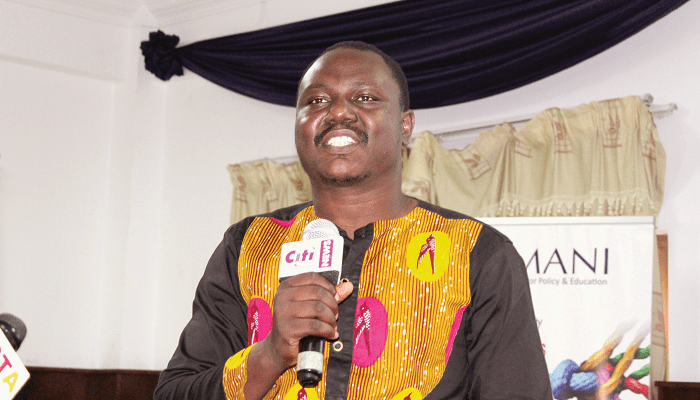According to Selorm Branttie, a governance and economics policy analyst, the Ada salt mining concession granted to Electrochem Ghana Limited has vast potential, potentially yielding hundreds of millions of dollars in revenue over the next few years, if implemented properly.
He observed that despite years of artisanal salt mining, the entire area has only managed to produce a maximum of 150,000 Metric Tons of salt per year, highlighting the potential for significant growth with more advanced mining methods.
Accordingly, Selorm Branttie indicated that ElectroChem’s Songhor Salt Works is poised for rapid expansion, with projected production of 500,000 Metric Tons in the first year of full operation, and a forecasted increase to around 1.2 Million Metric Tons by 2026.
He predicted that ElectroChem’s Songhor Salt Works will reach its peak annual production of 8 million metric tons within 5-6 years.
“At a projected price of $400/Ton, we are looking at least $400 million in revenue before 2026. Eventually, annual revenue should level up to at least $1.6 Billion to $2 billion annually for the salt resource if it is mined and managed well and up to $3 Billion annually upon full exploitation”.
“The whole cocoa industry makes Ghana around $2 Billion annually for comparison. The whole mining and quarrying industry in Ghana contributed around almost $2 Billion to Ghana in 2020. This means that salt as a mineral automatically doubles earnings to the country for the mineral sector”.
Selorm Branttie
Selorm Branttie stated that this means Ghana now has a new, massive income earner, poised to transform its export and trade balances, as well as its industrial landscape, emphasizing its huge national significance.

He stated that the Minerals Income and Investment Fund (MIIF) has invested GH¢300 million in Electrochem and $5 million in Atlantic Lithium, with more to come, indicating that Electrochem is set to be listed as a public company by year-end, allowing public investment.
As such, he maintained that listing Electrochem as a public company divests ownership to the public and investors, ensuring corporate governance and preventing single-person control.
Selorm Branttie stated that the MIIF and the Minerals Commission will ensure royalties from salt production go to the Ada Traditional Area and Clans, with potential annual earnings ranging from $2 million to $15 million, likely exceeding this estimate.
He further asserted that the clans would receive significant ground rent and royalties without any effort, plus access to 1,100 acres for community salt pans, enabling up to triple the annual salt harvests and revenue for the communities.
Salt Yields To Double, Artisanal Miners To Benefit
Furthermore, Selorm Branttie noted that the Electrochem project will double salt yields from once to twice a year, increasing revenues for artisanal miners, while also bypassing the “salt mafia” and ensuring direct benefits for clans and families.
He indicated that the Electrochem project’s impact extends beyond salt production, enabling vertical integration and industrialization.
The policy analyst stated that salt’s versatility as a raw material will spur massive industrialization, benefiting adjacent areas like Ada, Dawa, Sege, and Sogakofe, creating industrial hubs, and attracting significant investment.
He pointed out that even salt mining waste will be repurposed as valuable input for extracting other essential minerals.
“The creation of the salt jetty at the shores around Tsopoli alone will cater for over 1500 jobs and also serve as a berth for fishing, aquaculture, and transport, while also creating the chance for adjoining salt concerns to export through the jetty”.
“These alone will present themselves as multi-million dollar industrial opportunities, but the best future prospect, just like lithium, if we are allowed to dream in Ghana is in the energy sector. A lot of research is going into sodium-ion batteries for electric vehicles and others, with expected commercial sodium-ion batteries in 2027”.
Selorm Branttie
He specified that Sodium-ion batteries are preferred over lithium-ion batteries due to their safer operation, reduced heat risk, and lower environmental impact, as lithium refining is water-intensive and undermines its green credentials.

Branttie pointed out that that would be very significant for Ghana’s energy sector as the country could have many options for storing energy which could greatly transform many sectors.
Nevertheless, he warned that these developments will be futile if Ghana fails to grasp the transformative impact of salt on the country’s imminent future.
He stressed that salt is a readily available opportunity that can transform lives and revitalize Ghana’s economy, being a vital ingredient for growth and a game-changer for the country’s future.
“The people of Ada have it in them to unite and transform not only their lives but that of the whole country. As they celebrate this festival, a new dawn will arise that could give them the hope that was promised to them generations ago when they found the lagoon”.
Selorm Branttie
Selorm Branttie stated that Ghana has the opportunity to change the narrative of mineral discovery and exploitation by keeping the entire value chain localized, which is perhaps the best chance the country will have in a long time.
READ ALSO: GSE Records Over 100-Point Surge in Composite Index




















